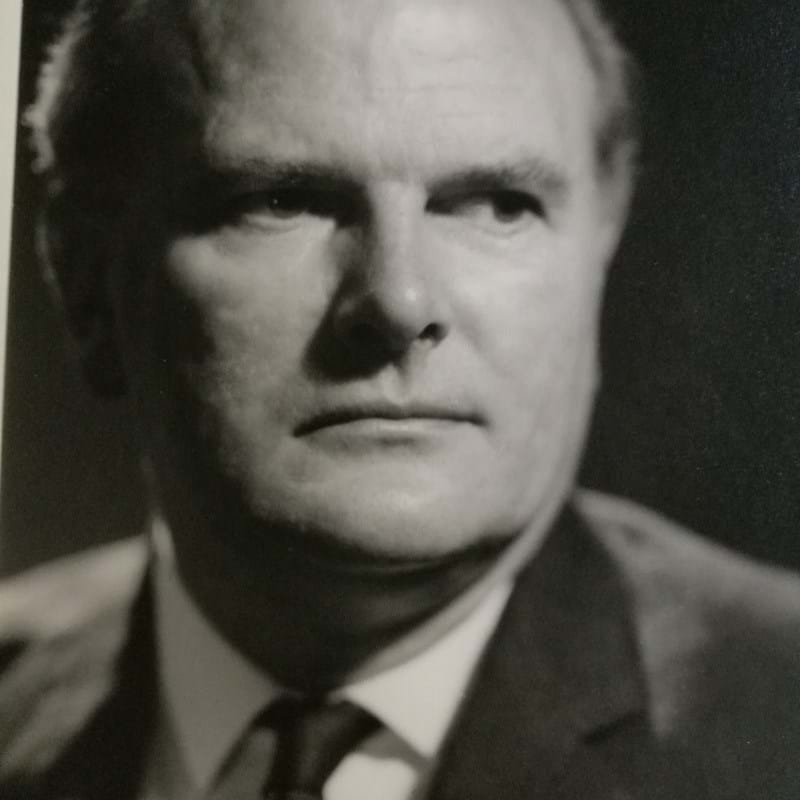
Peter Victor Danckwerts: 1965–1966
Peter Danckwerts was born in 1916, the son of Vice-Admiral Danckwerts. He was educated at Winchester College and from there went to Balliol College, Oxford in 1935. He took a first class Honours Degree in Chemistry just before the beginning of the war and then began to work in industry with the Fullers' Earth Union. In 1940, however, as a Sub-Lieutenant in the RNVR he became a Bomb Disposal Officer covering the Port of London Authority's area. In his own words, 'this wasn't very rewarding because most of the bombs fell in the water and weren't seen'. At the time there was a large number of sea mines which had been dropped by parachute on land in the London area and which were still lying in dangerous places. With insufficient experts to deal with them Sub-Lieutenant Danckwerts found where they were and tackled them himself. The German magnetic mine was, in 1940, under continuous development and little was known about it. Nevertheless during forty-eight hours' continuous work he disarmed many such mines and for this work he was awarded the George Cross. Later during the war he was wounded during the invasion of Sicily and subsequently joined the staff of Combined Operations Headquarters. In 1943 he was awarded the MBE.
It was not until after the war that Peter Danckwerts became involved in chemical engineering as, in 1946, he became a Commonwealth Fund Fellow at Massachusetts Institute of Technology, where he attended the Chemical Engineering Practice School and was awarded the SM degree. At this time he met the first Shell Professor of Chemical Engineering at Cambridge, T R C Fox, who had just been appointed to the Chair and was shortly to start the new course. Peter Danckwerts became one of the original team in Cambridge and joined, amongst others, Ernest Sellers, his predecessor as IChemE President, taking his full part in the organisation of the new Department.
In 1954, at a time of very considerable development of the Atomic Energy industry, Peter Danckwerts left academic life to become an administrator; though still in a field in which his interest in research could be continued. He became Deputy Director of Research and Development (Industrial Group) of the UKAEA. He held this post for two years until a new Professorship of Chemical Engineering Science was created at Imperial College and he became the first holder. At Imperial College his interest was primarily in teaching though he played a part in the establishment of the Nuclear Technology Group.
When, in 1959, Professor Fox resigned the Chair in Cambridge, Peter Danckwerts was elected as Shell Professor and returned to find the Department just completing the transfer to its new and permanent buildings. Under his capable guidance the Cambridge Department grew and expanded its research in many fields.
He was also Chairman of the Warren Spring Laboratory Chemical Engineering Research Committee and Visit to the Welwyn Hall Research Association. He was a member of the Board of Scientific and Industrial Studies of the National Council for Technological Awards, the Postgraduate Training Awards Committee of DSIR, and the Electricity Supply Research Council. In 1963 he was made an Honorary Senior Member of the Chemical Institute of Canada, and in 1964 a Foreign Honorary Member of the American Academy of Arts and Sciences.
Peter Danckwerts had always been concerned with the dissemination of the results of scientific research and in addition to publishing numerous papers in the technical literature, he was for some years the Executive Editor of "Chemical Engineering Science" and Editor of the International Series of Monographs on Chemical Engineering.
He was elected as a Member of the Institution in 1955, was a member of Council from 1960 to 1963, and Vice President in 1964-1965.
Return to list